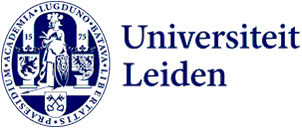
Comenius teaching grants for four Leiden lecturers
Four lecturers from Leiden University will receive a 50,000-euro Comenius Teaching Fellow grant. This will enable them and their team to realise an educational innovation within their own teaching.
The Comenius programme gives impetus to educational innovation and improvements in higher education. The Comenius Teaching Fellow grants fund small one-year projects.
Steven Lauritano – Centre for the Arts in Society
Project: New ways of seeing together
For millennia, students have studied diverse cultures by gathering around artefacts, and examining their forms, textures and traces of use. The hybrid campus discourages such interactive pedagogy: some students are present and able to handle objects, while others are scattered, watching remotely on screens. To address such a fundamental inequity, Steven Lauritano and his team will create a set of hybrid environments customised specifically for object studies. By combining whiteboard software with photogrammetry, digital replicas become manipulatable alongside their physical counterparts. Hybridising the objects themselves enables students – near and far – to conduct complementary analyses in real time.
Anouk van der Weiden – Social, Economic and Organisational Psychology
Project: Training critical reading skills
In their future careers, our students will be asked for evidence-based advice and interventions. This requires a critical assessment of how valid and applicable findings and conclusions in scientific articles are. However, students indicate that they do not know how to read critically. There are educational materials that focus on methods and statistics or offer general reading tips. What is lacking is training that helps students to actively practise critical reading from introduction to discussion and translate findings into follow-up research and interventions, while receiving immediate feedback. Anouk van der Weiden and her team will develop, together with students, a widely deployable online training course.
Tessa Mulder - Internal Medicine and teacher
Project: 3D anatomy using ultrasound in curricular education
Understanding the human anatomy in 3 dimensions is challenging for students. However, there is a decline of cadaveric dissection education, the traditional learning method. Ultrasound could be an alternative, and possibly superior way to learn 3D anatomy. When ultrasound is used to aid medical education it not only increases (3D) anatomical knowledge but also the quality of physical examination. In addition it enables students to visualize the inside of a living body. During this project we plan to develop and implement an educational module, using Augmented Reality, for students to work on 3D anatomical knowledge and simultaneously gain ultrasound competence.
Siavash Rafiee Rad - Leiden Institute for Area Studies (LIAS)
Project: Languages in academic practices
Students of many language and culture programmes, such as Middle Eastern Studies, specialise in a language of the region. In addition, they spend some time as part of their undergraduate studies in one of the countries in which that language is spoken. While there have been major developments in the pedagogy of academic skills as well as language acquisition, many students find the application of the academic skills and acquired language challenging, especially in terms of utilising their linguistic knowledge for their theses. This is mainly due to learning such skills in an abstract context, which has resulted in students not being able to fully utilise their potential in terms of their linguistic skills to be able to establish social and academic interactions as part of their research. This project aims to enhance students’ academic skills for research by developing a course and its material through which students will acquire and develop (transferrable) skills in order to be able to conduct fieldwork using a target language.
The Comenius programme
The Comenius programme, an innovation programme for research universities and universities of applied sciences, enables lecturers to put their educational vision into practice. It makes a wide range of educational innovations possible each year. With this programme, the government wants to show that it values excellent and inspired teaching. There are three different types of grant.
Teaching Fellows
This programme is intended primarily (but not exclusively) for beginning educational innovators.
Senior Fellows
This programme is intended for senior educational innovators.
Leadership Fellows
This programme is intended for educational innovators who are leaders.
- More information on applying for a Comenius grant.
- Save the date: on 8 June from 15:00 to 17:00 there will be an information session on applying for a Comenius grant. Contact Anna Terra Verhage if you’d like to receive an invitation for this session.
- Questions? Mail Anna Terra Verhage, Strategic and Academic Affairs.
